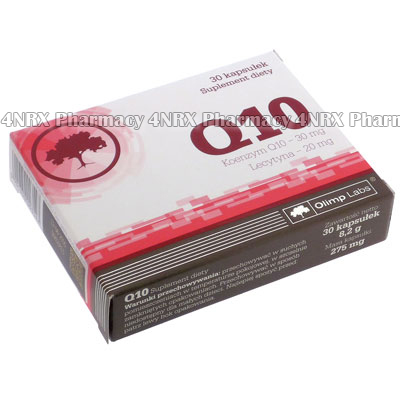 |
Home  General Health General Health  Q10 (Q10 Coenzyme/Lecithin) Q10 (Q10 Coenzyme/Lecithin) |
|
|||||||||
|
|
Q10 (Q10 Coenzyme/Lecithin)
What is Q10 (Q10 Coenzyme/Lecithin) used for? Q10 (Q10 Coenzyme/Lecithin) is an oral supplement used to treat conditions such as neurological disorders, high cholesterol levels, liver ailments, skin conditions, or anxiety. The medication contains a fat that is essential to the health of cells in the body to improve health and prevent deterioration. Your physician may prescribe it for other unlisted purposes, as well. How should I use Q10 (Q10 Coenzyme/Lecithin)? Q10 (Q10 Coenzyme/Lecithin) should always be used according to your physician's instructions to get the most effective results from treatment. The normal dosage is one capsule taken once daily, but your individual dosage will depend on your health condition and the severity of your symptoms. These should be swallowed with a large glass of water and may be taken on an empty stomach. Never open the capsules or dissolve their contents as this may destroy or alter the effects of their contents. What are the side effects of Q10 (Q10 Coenzyme/Lecithin)? The use of Q10 (Q10 Coenzyme/Lecithin) may cause side effects in some patients such as:
Stop using the contact and inform your physician immediately if you experience any unusual symptoms that are intense or worrying to make sure the correct alterations are made to your dosage to prevent further complications from occurring. Be especially cautious about any signs of an allergic reaction such as severe skin reactions, swelling, or trouble breathing. Please Note Strictly follow all instructions provided to you by your physician or pharmacist while using Q10 (Q10 Coenzyme/Lecithin). Optimum and safe dosage can differ based on the patient and the condition being treated. As this medication may be unsafe for certain patients, it is essential you always inform your physician if you are pregnant or breastfeeding, as well as if you have any allergies, other illnesses, or ongoing health conditions, and if you are taking any other form of medication, supplements, or herbal products. Immediately seek emergency medical care if you have an allergic or hypersensitive reaction. Common signs of a reaction include hives, swelling, skin rashes, chest pains, as well as trouble breathing or swallowing. 

|
||||||||||||||||||||||